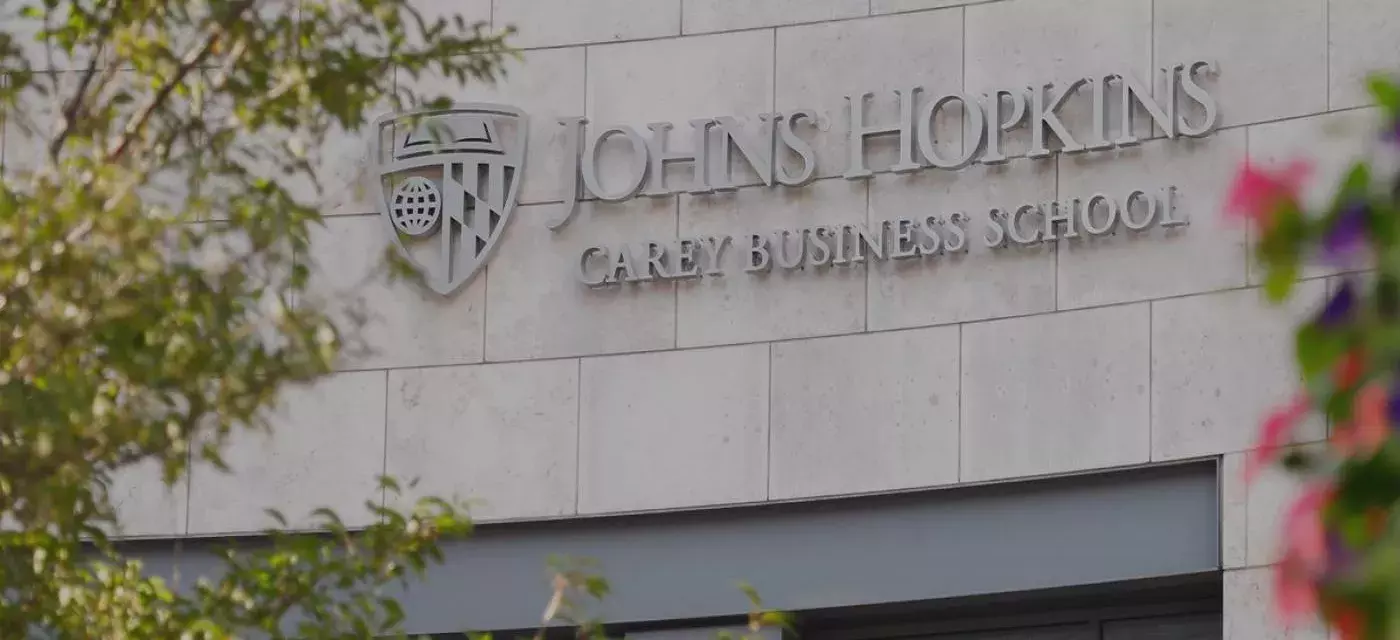Research Centers and Initiatives

Faculty and Research
Centralized networks of thought leadership
The Carey Business School faculty are engaged in interdisciplinary, applied research supporting the school’s research mission and identifying business solutions to some of society’s greatest challenges. Our centers and initiatives serve as centralized networks of thought leadership and resources for faculty, students, and the wider community.
Centers and Initiatives also provide unique collaborative spaces for partnerships between industry, government, and academic programs. Together, we can build for what’s next.

Center for Digital Health and Artificial Intelligence

The Center for Digital Health and Artificial Intelligence (CDHAI) seeks to create knowledge that will facilitate and accelerate the digital transformation of health care and wider application of unbiased and ethical AI for health. CDHAI works in partnership with the pre-eminent Johns Hopkins ecosystem of institutional assets, including the Bloomberg School of Public Health, Johns Hopkins School of Medicine, and Johns Hopkins Whiting School of Engineering. Affiliated faculty are leading researchers in the technical, analytical, behavioral, and economic aspects of healthcare interventions. CDHAI is also engaged with a wide network of external partners including entrepreneurs, large corporations, and federal and state agencies.
Center for Innovative Leadership

The Center for Innovative Leadership (CIL) at the Carey Business School aims to advance knowledge and build capacity for innovative leadership in modern organizations. CIL is a hub for new ideas and insights on leadership, combining faculty-led research, student-facing programming, and community-focused impact.
Human Capital Development Lab

The Human Capital Development Lab (HCD Lab) takes a cross-disciplinary focus on key challenges facing human capital leaders around the world. As a development lab, the affiliated faculty strive to bridge the rigor of academic research with the pragmatic needs of business leaders, policy makers, and professional associations. To support this goal, the HCD Lab is actively engaged with external partners, including businesses, associations, and government agencies.
Gender & Work Initiative

The Gender and Work Initiative partners with scholars, leaders, and organizations to generate and disseminate evidence-based knowledge and practices to help create gender equitable workplaces. Our affiliated faculty produce leading research focusing on the relational and structural factors contributing to gender inequality within organizations and labor markets.
Learn more about the Gender & Work Initiative
Technology and Society Initiative

The Technology and Society Initiative strives to understand how business decisions, policy frameworks, and consumer behaviors interact to shape the impact of technology on our lives. Drawing on these frameworks, the initiative aims to provide insights and solutions that promote a vibrant, ethical, and inclusive tech ecosystem. Its Washington, D.C. location offers an exciting environment in which to engage business and policy leaders with research and dialogue.
Learn more about the Technology and Society Initiative
Hopkins Business of Health Initiative

The Hopkins Business of Health Initiative integrates the scholarship across Johns Hopkins University including the Carey Business School, Bloomberg School of Public Health, School of Nursing, and School of Medicine around a shared vision of a healthier America, supported by an affordable and equitable, high-value health system. In pursuit of this vision, our work focuses on the role of business and incentives through rigorous, objective, non-partisan, interdisciplinary research.
Center for Health Systems and Policy Modeling

The Center of Health Systems and Policy Modeling aims to become a definitive source of information on the U.S. health sector, and the policy levers that could bring better outcomes at lower costs in the future. The center conducts research to address emerging issues in health policy with rigorous empirical work—predictive models and causal inference methods from econometric study designs—with a goal to provide insights to the health care sector, businesses, and policymakers on how to improve health care delivery and outcomes. The health system model will provide policymakers, health care providers, and businesses with insights into the ways in which incentives and institutional structures shape care delivery and outcomes and how policy and business decisions can alter them.
Learn more about The Center of Health Systems and Policy Modeling
Digital Business Development Initiative

Grounded in the Dulles Tech Corridor and at the Carey Business School campuses in Baltimore and Washington, D.C., the Digital Business Development Initiative aims to advance the research, education, and practice aspects of digital business development, offer a leading network to address the profound impact of digital transformation, and open new paths of opportunity for the future of work in the digital economy.